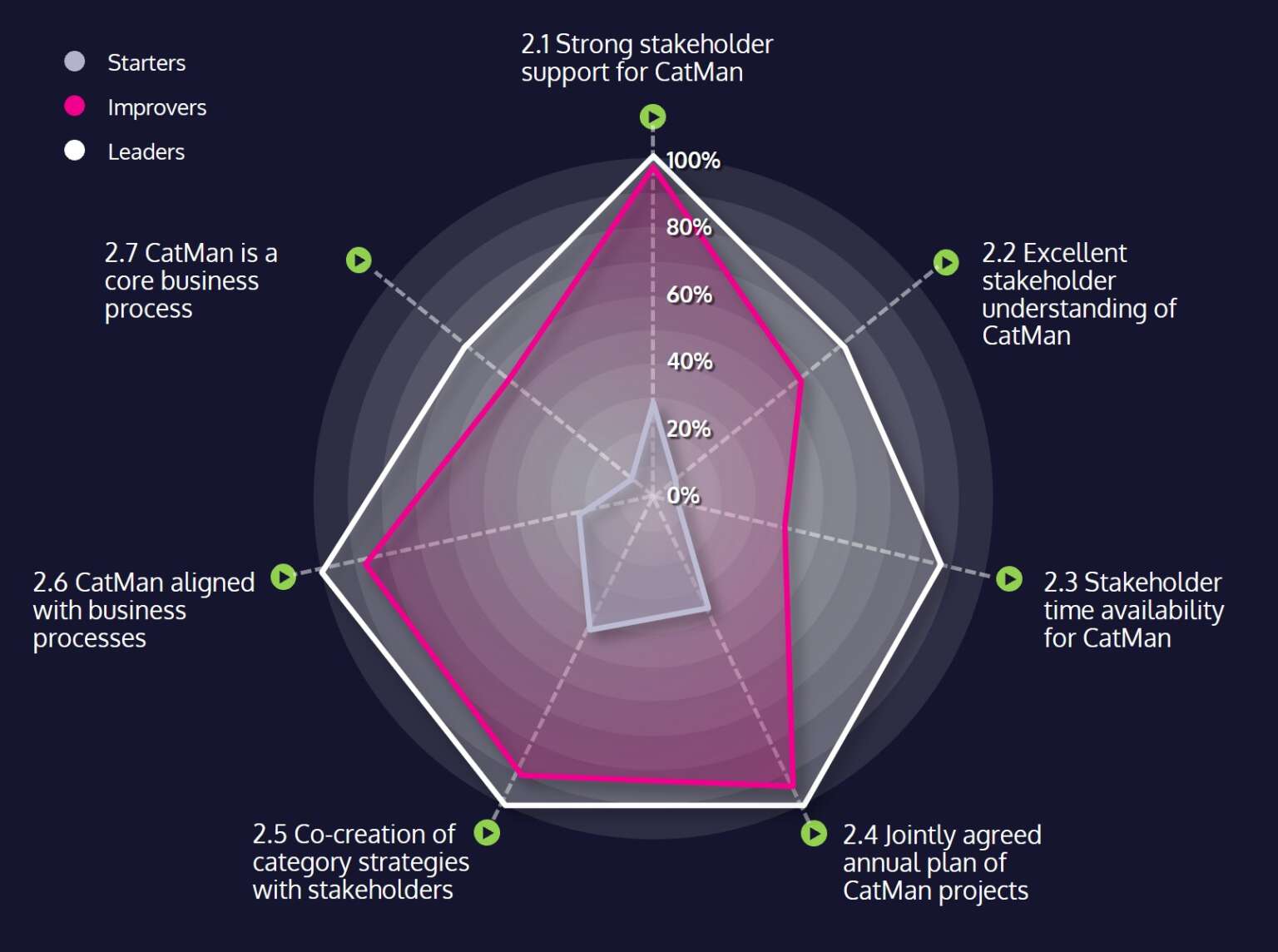
Category management report
Stakeholder engagement – Why does it matter?
By Future Purchasing |
Stakeholder engagement is at the core of successful category management
Procurement teams need to deeply understand the business they are working in and functions they are supporting. The approach to category management needs to be tailored to this environment. Communications at multiple stakeholder levels need to be prioritised – from executives that provide support and investment to line managers that approve category strategies and technical experts that participate in cross-functional teams.
Why does stakeholder engagement matter?
Leaders recognise that cross-functional team working combining the commercial skills of the procurement team with technical skills from the business is a fundamental principle of successful category management. It is the best way to access the extensive range of value levers that stakeholders control, such as specification optimisation and supplier integration. These drive major category change and unlock the full value potential available.
Securing time from technical stakeholders to sponsor or work on category projects requires all members of the procurement team to engage their peers in the stakeholder community. This builds an understanding of individual stakeholders, how to make category management relevant to them and explains why their contribution is critical.
Many procurement teams are in an ongoing process of “selling” category management and cross-functional working to budget holders and technical stakeholders. Whilst this is always necessary to some extent, the results from our survey show that leaders have evolved their stakeholder relationships to a point where collaborative working is reinforced with joint objectives and accountability for delivering category targets.
What our global category management survey tells us about stakeholder engagement
In summary
The overall score for stakeholder engagement across all respondents has increased from 30% to 36% compared with the 2019-20 survey.
The highest score was 55% for Q2.5 on co-creation of strategies which is one of the most important factors in making category management a success. This is an encouraging sign.
The lowest scores were for Q2.2 at 20% and Q2.7 at 21% covering excellent stakeholder understanding and category management being a core business process. This is slightly contradicted by Q2.1 covering strong stakeholder support for category management which scored 46%. These questions all address the same challenge of stakeholders adopting category management and so it may be expected that they should be similar scores.

Key recommendations
Leaders v Starters performance gap
1. Build stakeholders’ understanding of category management through awareness sessions and excellent communications aimed at senior executives, category sponsors, and team members. (Quick Wins)
9x
2. Align category management with other related business processes e.g. marketing, NPD by ensuring the interfaces, overlaps, ambiguities or dependencies are understood and managed.
4x
3. Make category management a core business process that is adopted by stakeholders by designing an approach that can be used easily in the organisation and is valued for its outputs.
8x
4. Measure stakeholder support for category management and use this as a key success indicator for the programme that all of the procurement team are responsible for.
4x
Let’s Talk
If you want to get more value out of your procurement spend, or you just want to know more about us, request a callback above or send us an email and we will come straight back to you.




